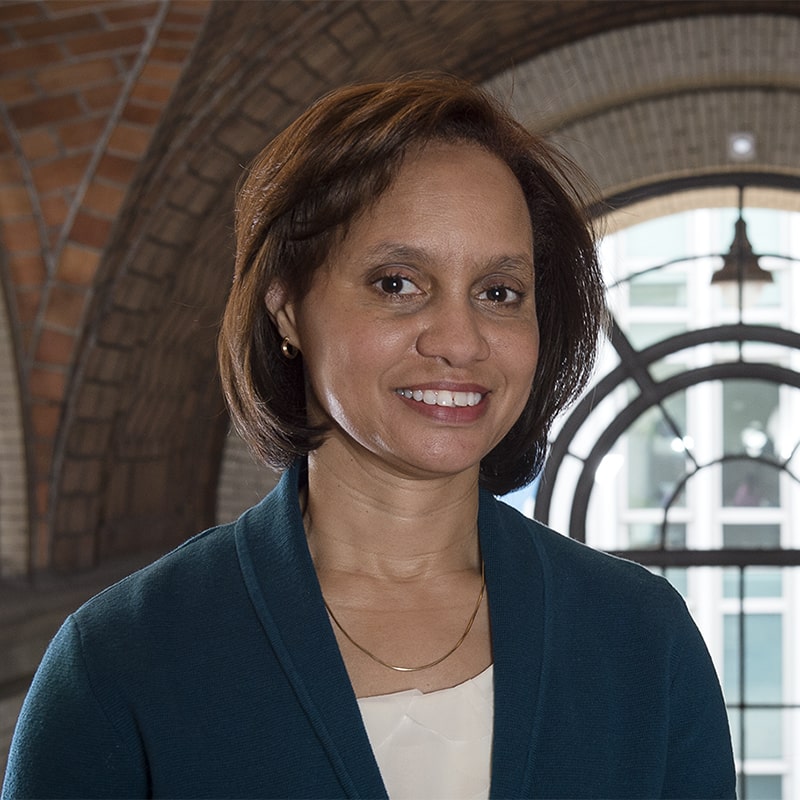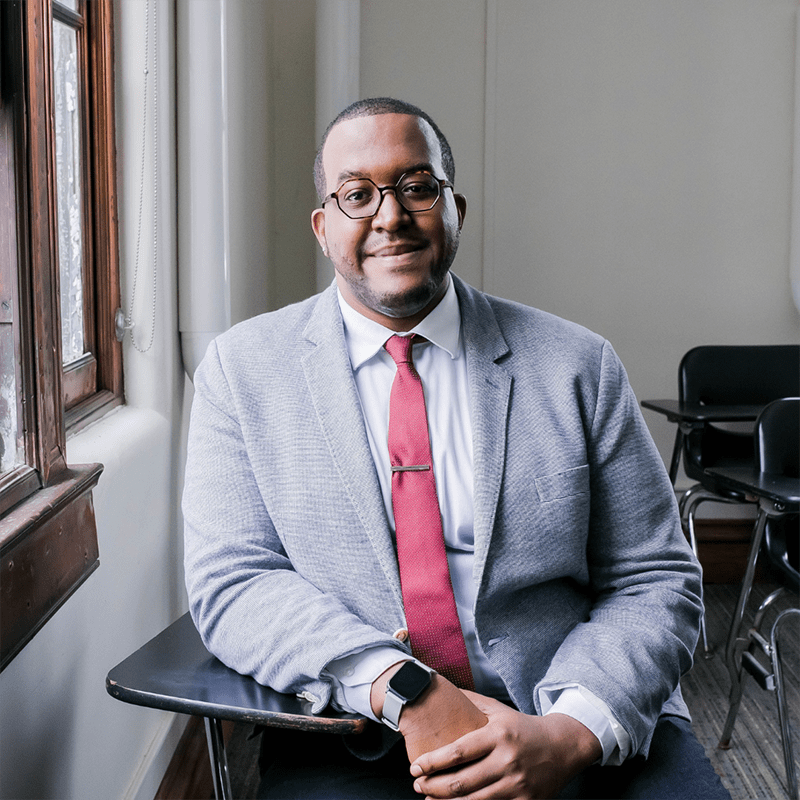First-Year Students Explore Drivers of Health Disparities
By Marissa Pekular
Students in a Grand Challenge Seminar co-taught by Chante Cox-Boyd and Ezelle Sanford III are exploring how social factors impact health outcomes for Americans.
The Dietrich College of Humanities and Social Sciences’ Grand Challenge Seminars provide first-year students with opportunities to tackle complex, real-world problems.
Cox-Boyd and Sanford approach the seminar, titled “You Make Me Sick: Causes and Consequences of Health Disparities,” through their respective disciplines. Cox-Boyd is a teaching professor and associate director of undergraduate studies in the Department of Psychology and Ezelle Sanford III is an assistant professor in the Department of History.
“My interest is really in the way we make judgments about people through psychology,” Cox-Boyd said. “More recently, I’ve been interested in how people’s judgments also impact physical health.”
Cox-Boyd created the course with the intention of helping first-year students understand the impact of prejudice on health and the complex social dynamics that result in health disparities. Approaching the course from a psychological perspective, she wanted her students to understand that health disparities occur due to a host of social factors that are commonly overlooked or dismissed.
“Health disparities don’t simply occur because some people don’t have health insurance,” said Cox-Boyd. “It’s so much more complicated than that. The way that we treat people, look at people and the way that people believe others think of them can impact so many areas of your life including health.”
Sanford approaches the course through a historical lens. His research focuses on the intersection of urban and Black histories, the history of medicine and public health. Growing up in Charlotte N.C., Sanford was a witness to the health issues that members of his family and the broader Black community experienced when trying to access healthcare services.
“[This course] gives our students a more well-rounded picture of the state of health disparities in the United States,” he said. “It serves as an opportunity to think about how we might address these issues in the future.”
During the course, students learn about disparities in maternal mortality and sexism in medicine, mental health and social support. They examine the often-overlooked root causes of health disparities, like housing insecurity, overcrowding, educational inequalities, food accessibility and environmental factors.
The goal of the Grand Challenge Seminar is to not only inform students of complex issues but also to provide them with the framework to address these barriers throughout their civil lives and careers.
“I have this desire that students will take to heart some of the topics we discuss and perhaps go into the world and be problem solvers,” said Cox-Boyd. “Who better than our CMU students to take on this challenge?”
Both instructors work to make students aware of the ways they can address this problem in their individual fields, whether it be public policy, engineering or even information systems. There is a role almost every person can play throughout their careers in addressing factors that contribute to health disparities.
During her first year at CMU, Abigail Glass took the seminar to gain more insight into the inequalities that many Americans face daily.
“Understanding these challenges on a deeper level truly makes you see the world in a new perspective,” Glass said. “It is crucial to take care of each other and learn how we can help.”
This comprehensive course utilizes research articles, class discussions, film and guest lecturers to present vivid examples of factors contributing to health disparities. Students also participate in a field trip where they engage with neighborhoods adjacent to the CMU campus.
“The name of the game is exposure. The foundation of this course is to get students to empathize with people who are different from them,” said Sanford. “Many times, we don’t all confront the same barriers and challenges.”
Cox-Boyd hopes the knowledge and tools taught in this course can help students consider alternative explanations when they approach similar problems throughout their educations and careers.
Sanford similarly hopes that students appreciate the complexity of the challenges people encounter, whether it be health, housing, jobs or food access.

